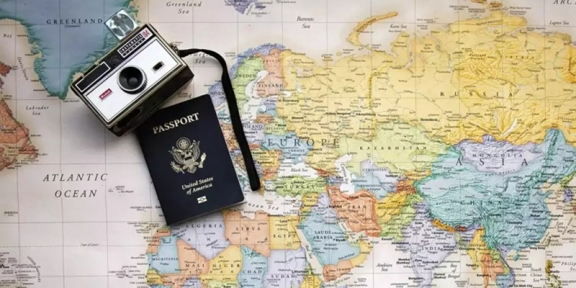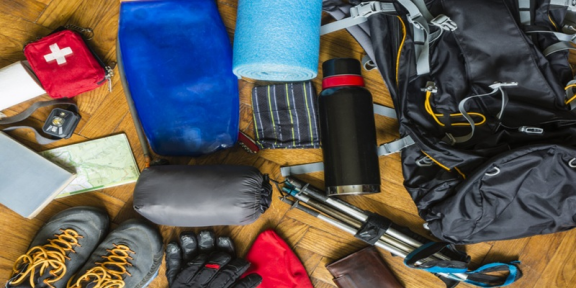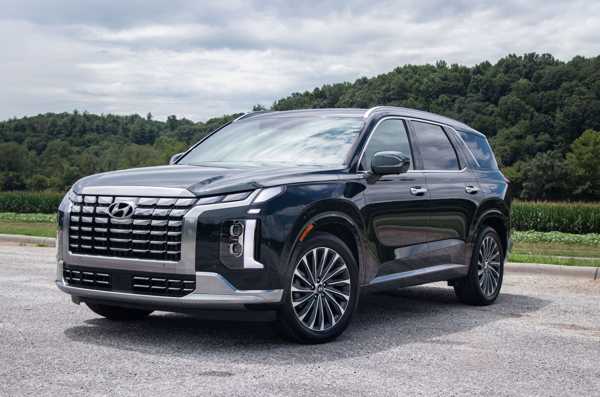Finance
Why the Right ISP is Crucial for Your Business in the Digital Era
1758089478000
Embarking on a budget backpacking adventure through Europe is an enticing journey that promises breathtaking landscapes, vibrant cultures, and unforgettable memories. However, managing finances, securing fantastic deals, and optimising your limited resources can be challenging. Are you ready to dive into the best budget tips for your European adventure? Let's get started!
Embarking on a budget backpacking adventure through Europe is an enticing journey that promises breathtaking landscapes, vibrant cultures, and unforgettable memories. However, managing finances, securing fantastic deals, and optimising your limited resources can be challenging. Are you ready to dive into the best budget tips for your European adventure? Let's get started!

When mapping out your financial plan for backpacking across Europe, it's crucial to estimate daily expenses, which can significantly vary by region. In Western Europe, expect to spend approximately €70 to €150 per day. This estimate conveniently includes necessities such as accommodation, meals, and transportation. For instance, a typical budget hostel can range from €30 to € 50 per night, with meals at budget restaurants adding about €10 to €15 to your daily costs.
Conversely, Eastern Europe presents a more wallet-friendly scene, with daily expenses typically ranging from €40 to €80. Hostels in this region can often be found for as low as €10-€20, while meals may cost only €5-€15.
Before embarking on your adventure, setting a realistic budget is crucial to avoid overspending. Use budgeting apps like Trail Wallet or Travel Mapper for effective expense tracking, ensuring you stay within your limits while maximising your experience.
Securing inexpensive flights is pivotal for cost-effective backpacking across Europe. Begin your journey by booking flights well in advance, ideally three to six months before your intended travel dates. Use fare comparison platforms such as Skyscanner and Google Flights to identify the best available deals. These tools often allow you to set alerts for price drops, increasing your chances of booking at lower rates.
Consider travelling during off-peak seasons—typically late autumn, winter, and early spring—when airlines frequently lower prices to fill their seats. Budget airlines like Ryanair and EasyJet provide incredibly cheap flight options within Europe, but be cautious about additional fees for baggage and seat selection.
You may also want to explore 'hidden city' ticketing. In this strategy, you book a flight to a city with a layover instead of your final destination and disembark at the layover location. For example, flying from London with a stop in Amsterdam on your way to Berlin could be cheaper than a direct flight to Berlin. Just remember, this option is typically best for one-way trips, since missing the final leg cancels your return flight.
Choosing the right place to stay is fundamental to a successful backpacking trip across Europe. Below are some affordable accommodation options:
Pros: Great for budget travellers, with a social environment and often includes complimentary amenities like Wi-Fi and breakfast.
Cons: Can be noisy, shared facilities may lack privacy.
Recommendation: Explore Hostelworld for a wide range of options.
Pros: CosyCosy stays true to a personal touch, often located in residential neighbourhoods that reflect local culture.
Cons: Availability may be limited, and prices are subject to fluctuation.
Recommendation: Use platforms like Booking.com to find reviews and competitive rates.
Pros: Offers more privacy compared to hostels, and is generally more comfortable.
Cons: May lack kitchen facilities and can be pricier during peak season.
Recommendation: Use Trivago for discovering the best hotel deals.
Consider additional resources, such as Airbnb and Couchsurfing, for unique stays at budget-friendly prices. Furthermore, staying slightly away from tourist hotspots can yield savings while providing more authentic local experiences. Be sure to prioritise early bookings to secure the best rates and ensure your peace of mind while travelling.
Exploring Europe doesn’t have to strain your wallet, thanks to a variety of public transportation options available. Start leveraging trains, buses, and trams. Not only are these alternatives budget-friendly, but they also often provide scenic backdrops to your travels. For example, regional trains in countries like Spain and Italy facilitate cheap exploration among multiple cities.
For those planning extensive intercity travel, consider Eurail passes, which offer unlimited train travel across 33 countries, presenting a convenient and often economical choice. Budget bus companies, such as FlixBus and Eurolines, also have extensive networks and provide competitive pricing for long-distance journeys.
Don't forget the simple pleasures of walking or biking; cities like Amsterdam and Copenhagen are renowned for their bike-friendly infrastructure, allowing for exploration at your own pace while saving money. Additionally, harnessing transportation apps like Google Maps or Citymapper will make navigating cities a breeze, ensuring you never miss a beat during your travels.
Dining across Europe doesn’t have to be an expensive affair. Street food, bustling markets, and budget-friendly eateries offer delicious and economical options. For example, in Barcelona, you can grab a satisfying sandwich from a local vendor for just a few euros, while in Italy, classic street food such as pizza al taglio can be enjoyed for under €3 a slice.
Grocery shopping can significantly contribute to your savings; buying fresh produce and bread from local markets can cost around €20 for a week’s worth of meals, which is considerably lower than the prices at typical sit-down restaurants.
Use apps like Yelp and TripAdvisor to discover highly rated budget restaurants in your area. Plus, pack snacks like nuts or local pastries to avoid being lured into purchasing overpriced items at tourist traps. Some noteworthy affordable meals include crepes in Paris or bratwurst in Berlin, each providing a taste of local culture without the hefty price tag.
Careful meal planning can not only help save money but also deepen your travel experience with the variety of flavours Europe has to offer.
Finding the right backpack is crucial for a comfortable and efficient backpacking journey through Europe.
First and foremost, focus on size—a backpack between 40 and 60 litres generally suffices for a week-long trip, offering enough space for essentials without being too bulky.
Next, consider weight; a lighter pack reduces strain during long walks or hikes. Look for options made from materials like nylon or polyester that strike a balance between durability and lightweight convenience.
Compartments are equally important—numerous pockets for organisation can help you access items swiftly, while hydration slots keep you replenished on the move.
Popular brands such as Osprey, Deuter, and Gregory offer excellent options that marry functionality with appealing designs.
Ultimately, striking the right balance between comfort and style is vital; seek ergonomic designs with adjustable straps, ensuring your looks don't compromise your mobility.

Packing for a backpacking trip need not be overwhelming; a well-organised checklist can simplify the process while enhancing your travel experience. Here's a rundown of must-have items:
Clothing: Opt for lightweight, moisture-wicking fabrics ideal for layering. Essential attire includes breathable shirts, quick-dry pants, a warm fleece jacket, and reliable hiking shoes.
Toiletries: Bring travel-sized toiletries such as biodegradable soap, a toothbrush, toothpaste, and a compact towel. Remember to pack sunscreen and a compact first-aid kit containing band-aids, pain relievers, antiseptic wipes, and any personal medications you may need.
Gadgets: A portable charger, a universal adapter, and a durable compact camera can enhance your travel experience.
Tips for Packing Smartly: Roll your clothes to save space and minimise wrinkles. Use packing cubes to stay organised and ensure you pack only the essentials.
Essential First-Aid Kit Items: Include items such as adhesive bandages, gauze, antiseptic ointment, and any prescription medications you might need during your travels.
Now is the time to start planning your European adventure! Embrace the tips provided—from savvy budgeting to selecting ideal accommodations. Don’t wait any longer; begin plotting your unforgettable journey today, fully immersing yourself in the vibrant experiences that budget backpacking has to offer. Your adventure awaits!
Life
1757665300000
Life
1757665345000
tech
1757491038000
car
1756719077000



